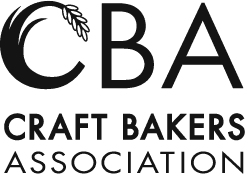Oct 8, 2023
Hugo Walker
As a Food Industry business owner or manager, one of your top priorities is ensuring that your workforce is productive and efficient. However, when your employees are stuck performing mundane and repetitive tasks, it can lead to boredom and burnout, resulting in decreased productivity and employee churn. This is a significant part of the reason it’s such a challenge to get people into jobs within hospitality and manufacturing.
That being said, empowering certain parts of your workforce (admin, sales, logistics, etc.) with the right digital & automation tools can help them focus instead on fulfilling work and increase productivity. After all, in 2024, employees pasting data into Microsoft Excel isn’t exactly cutting-edge digital transformation.
“I'm a strong believer that technology and automation aren’t about reducing headcount or trying to employ fewer people. I believe it's about using people in a much more empowering way.”
— Sam Page, Managing Director, Simply Lunch
The benefits of empowering your workforce
Evidence shows that when your team is empowered with the right tools, their performance improves. Automating repetitive tasks can free up time for your employees to focus on more meaningful work, such as problem-solving and creative tasks. This can result in increased job satisfaction and motivation, leading to a happier and more productive workforce.
Empowering your workforce with cutting-edge software — whether for internal organisational comms or customer online ordering — can also increase efficiency and productivity. With the right tools, your employees can complete tasks more quickly and accurately (or even have them completed for them).
As well as increased output and revenue for your business, implementing software can also lead to increased job satisfaction for your staff.
According to Planday, “Despite the many fear-mongering proclamations that technology is going to replace your workforce entirely, the truth is that it can be just as useful to help employees feel more engaged and invested in your business.”

Choosing the right tools
When it comes to providing your workforce with new software, it's crucial to research the market, speak with the provider and, ultimately, choose the best tools for the job. You should consider the specific needs and goals of your business when deciding what to invest in. For example, if your employees spend a lot of time on data entry, you may want to consider a software integration with the source of that data so that it passes across automatically.
You should also consider the user-friendliness of the solution. If it’s too complex or difficult to use, your employees may become frustrated and overwhelmed. Invest in software with intuitive, modern interfaces and helpful support teams to ensure your employees can easily learn and benefit from the tech at their disposal.
AI doing the work of over 200 people at Octopus, chief executive says
Maximise its potential
Okay, so you’ve decided to digitise your operation — often the hardest step, especially for businesses who have relied on traditional methods for a long time. To maximise the potential of digital tools, you must set aside time for your team to get comfortable with it. The software provider can usually help with set up and basic training, and provide explainer videos etc.
“The digitisation of the business sector has clear and unequivocal benefits not just for SMEs, but for the economy as a whole. However, figures show that some small businesses are still not utilising the tools available to them."
— James Turner, Managing Director, Turner Little
You should also encourage your team to provide feedback on the software. This can help you identify any issues or areas for improvement, or even shape future features for the platform itself. Feedback from your team allows you to make adjustments and ensure the tech is meeting the needs of your workforce.

There's a huge opportunity for Food Manufacturers to use cutting-edge software tools to empower their workforce, save time and generate revenue.
If you'd like to discuss how your food manufacturing business could optimise resources and boost revenue, contact us today.






